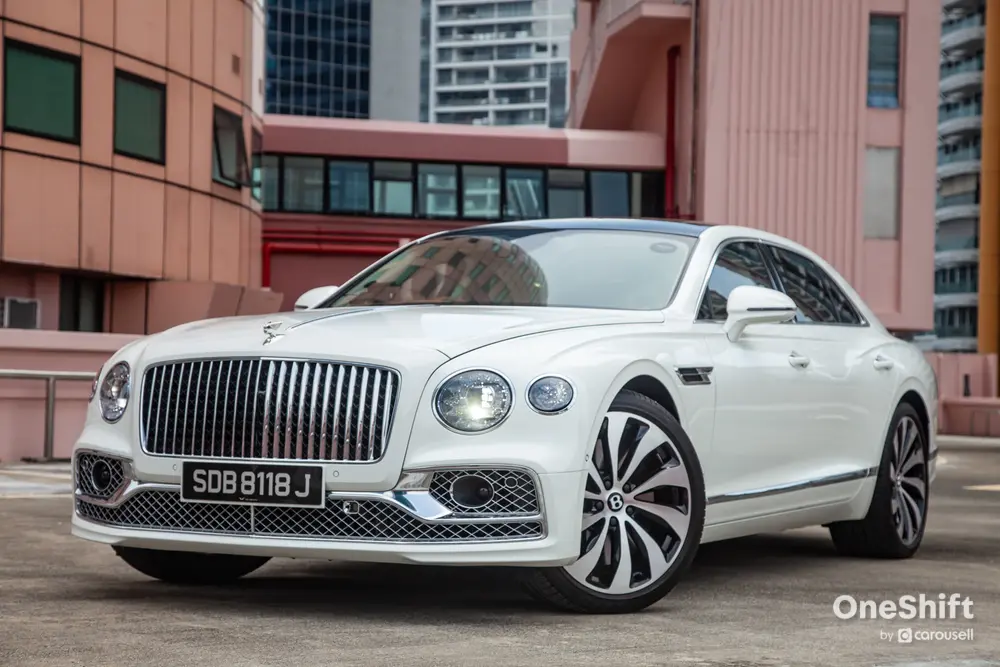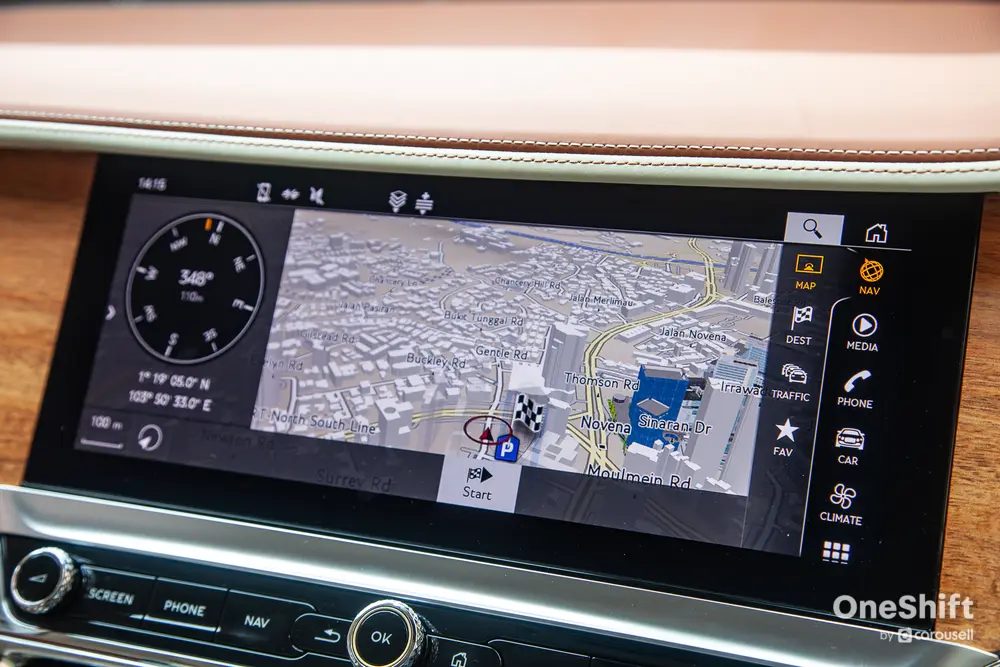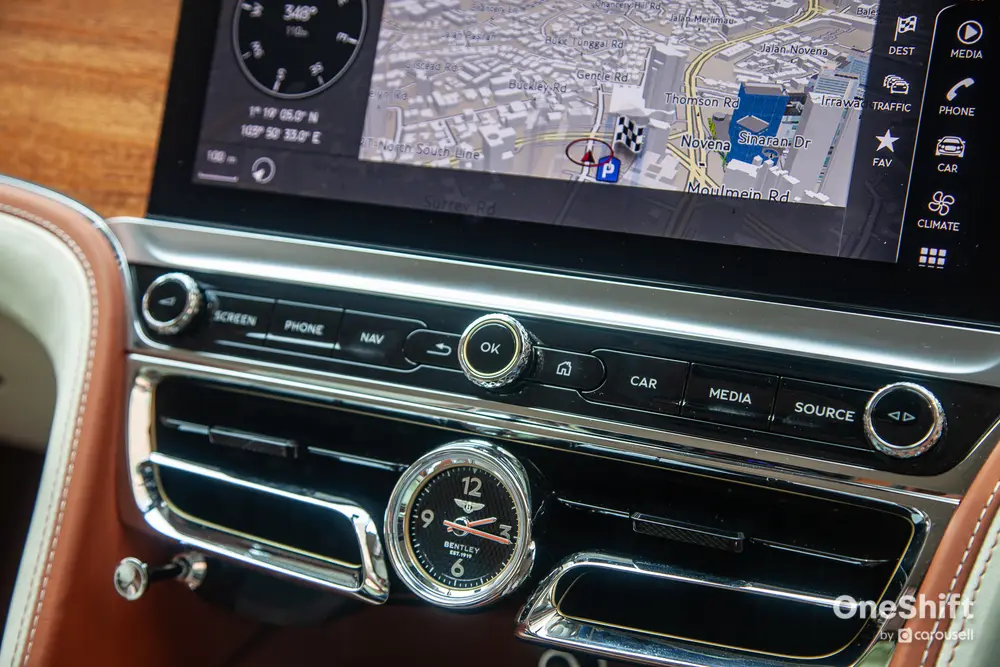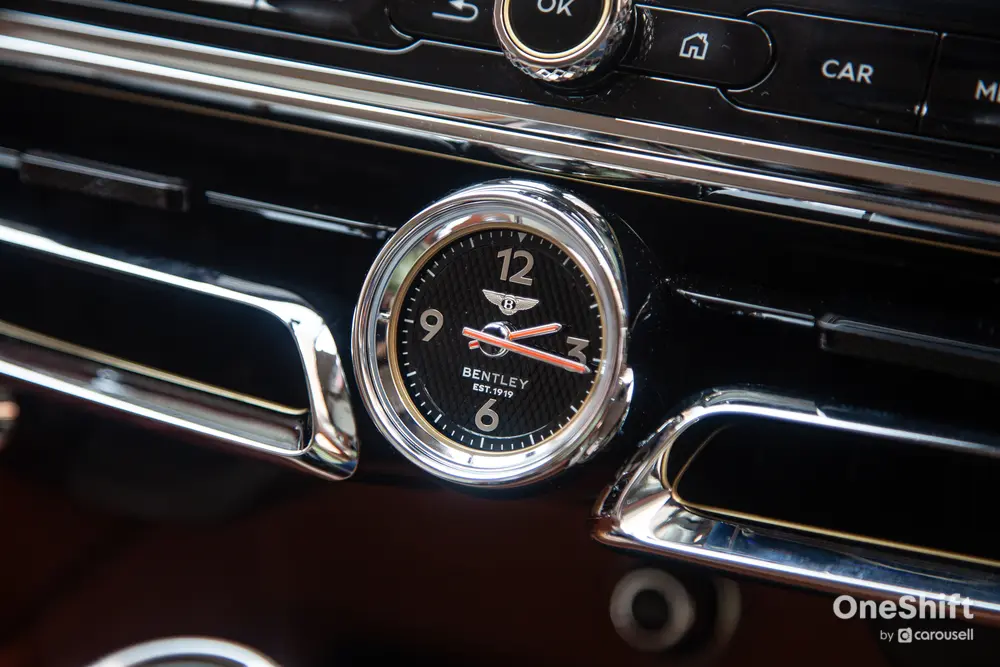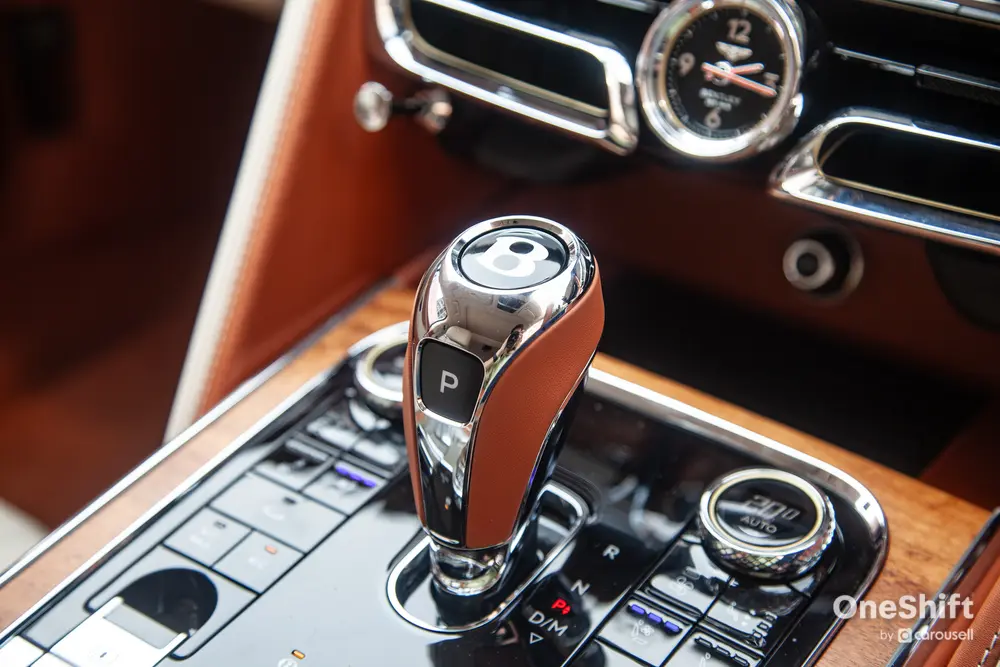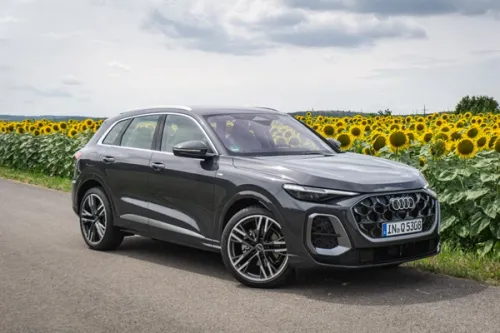2024 Bentley Flying Spur Azure 4.0 V8 Review: All the Right Ingredients
We say farewell to the Flying Spur’s non-electrified V8 as a PHEV version beckons.







Has it already been almost 3 years since we test drove the current generation Flying Spur? It was during the heights of COVID-19 when Bentley kindly flew OneShift to Los Angeles to check out the Flying Spur Hybrid - the entry level to the range, if one could call it that. It had a V6 PHEV, a hint of what was to come. It was one of the very first long haul press trips after the lockdowns, and it was enriching to say the least. The ability to see the world again and to drive the Bentley along some of California’s most iconic roads was very special.
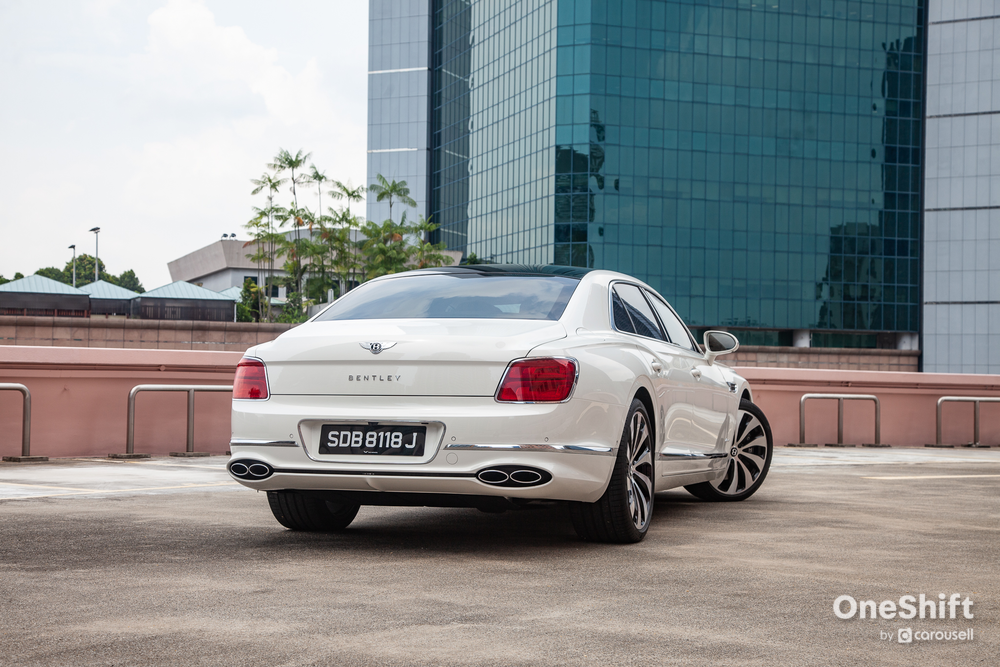
When the car arrived in Singapore, we drove it again and found it a fit for our little island’s unique driving conditions - confirming our findings in California. In fact, we found it even more suited for our roads thanks to our shorter travelling distances.
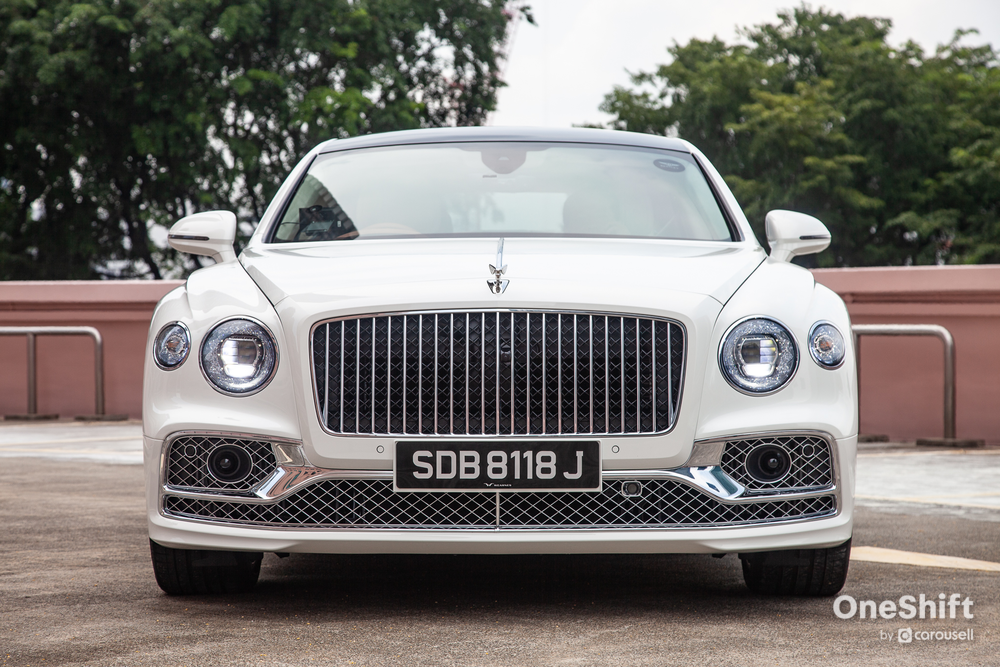
But as hybrid tech takes the mantle as the main drivetrain option in the updated Flying Spur - a plug-in hybrid twin-turbo V8 - we bid farewell to the last non-electrically assisted Flying Spur (not the W12 as it has already been discontinued for some time). That is the one with a 4.0-litre twin-turbo V8 that, without any help of a battery and electric motor, is good for 550 PS and 770 Nm.
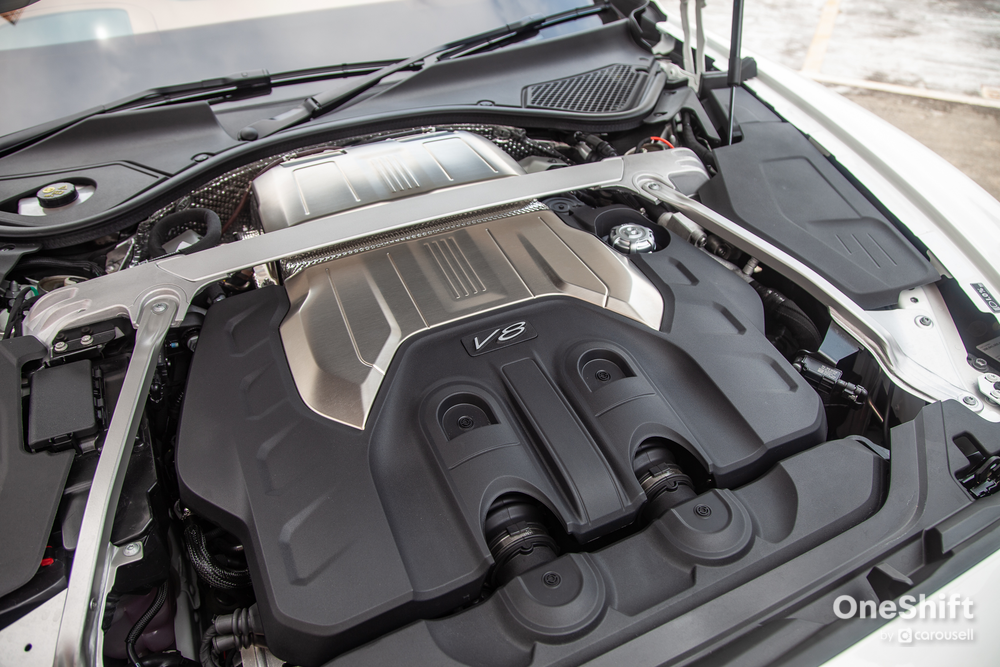
With a 0-100 km/h time of 4.1 seconds, you’d never imagine wanting for any more power. And it is true - the car is quick, but not excessively, so you can stretch the V8 by some margin without breaking the speed limit. It sounds muscular and full-bodied, seeping into the cabin perhaps a bit more than you would expect. But then again, a Bentley always had sporting roots. It is a wonderful pairing with the surprisingly agile chassis, helping the car to feel smaller than it really is. I can’t help but wonder if the new PHEV V8 would allow more effortless progress when the engine is just bumbling along - but also wakes up with the effervescence of the top-end?
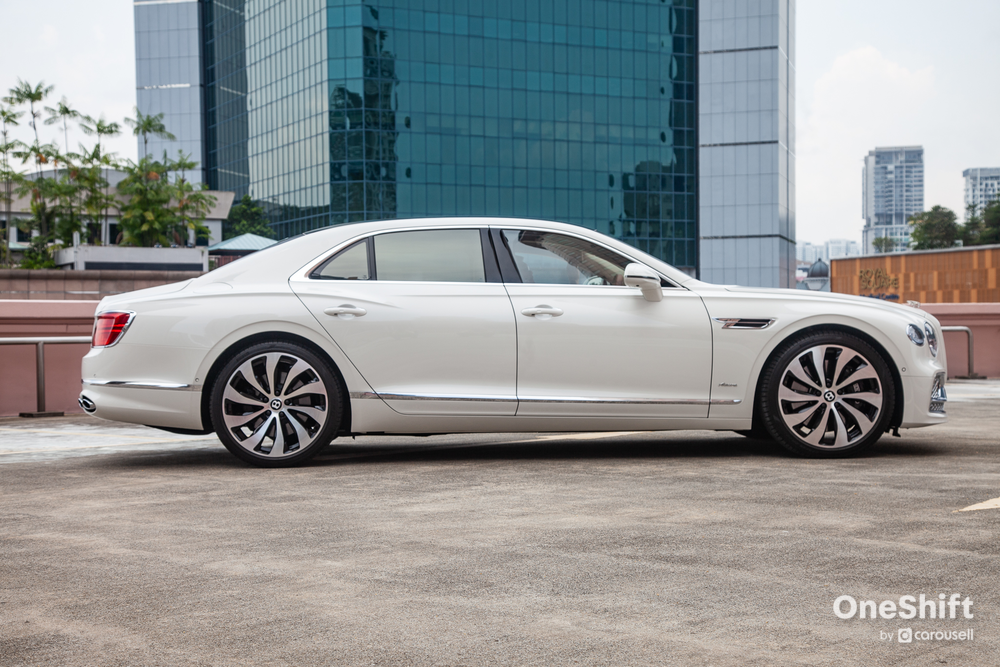
Being 100 kg lighter than the W12 model and having displacement on its side versus the V6 PHEV, the V8 is the natural athlete of the pack. It comes as standard with adaptive air suspension, brake torque vectoring and front and rear hollow, lightweight anti-roll bars. If you want to take it a step further, 48-volt electric active anti-roll bars (dubbed Bentley Dynamic Ride) and all-wheel steering are available as options. The former applies up to 1300 Nm of anti-roll torque in 0.3 seconds when cornering to keep the body flat and stable. Altogether, the Flying Spur is surprisingly lithe, but it is more sure-footed than hooligan. And that is exactly what Bentley is aiming for.
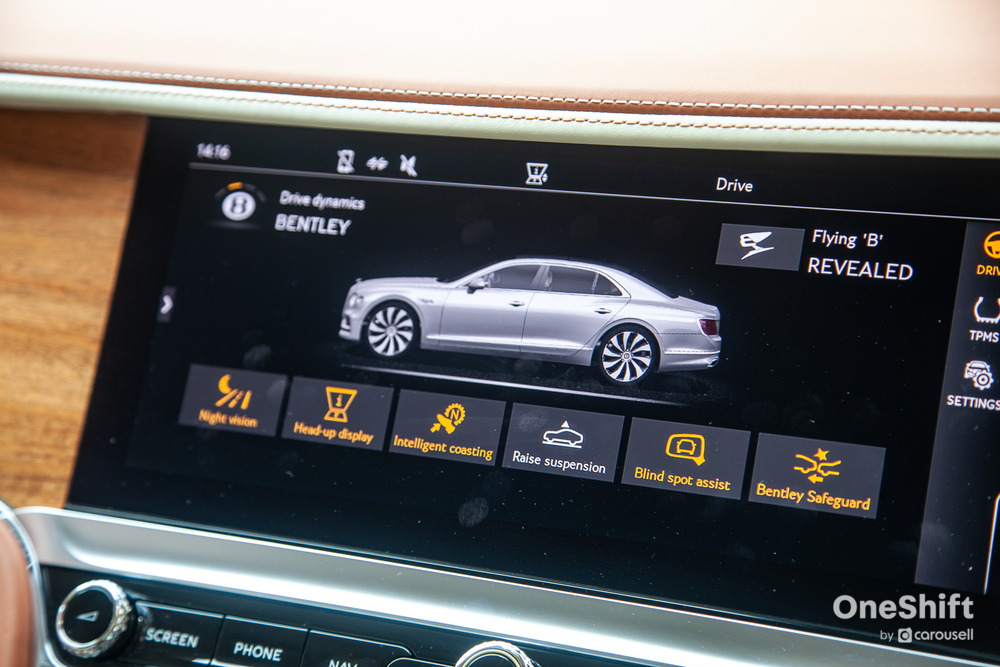
In fact, ride comfort is well-judged, the car managing its heft very admirably. It errs on the side of softness, but never loses its composure. As you would imagine, riding in the Flying Spur is very quiet, with a sumptuous rear cabin that manages to be a cut above the typical German luxo-barge offerings. But don’t expect Rolls-Royce levels of serenity; there is more road noise here, but that is to be expected for something that is as much a driver’s car as it is a chauffeur-driven limousine. With the next generation being a PHEV, I’d expect a lot more silent running to be part of the equation, while still having the choice to wake up the engine if you want to.
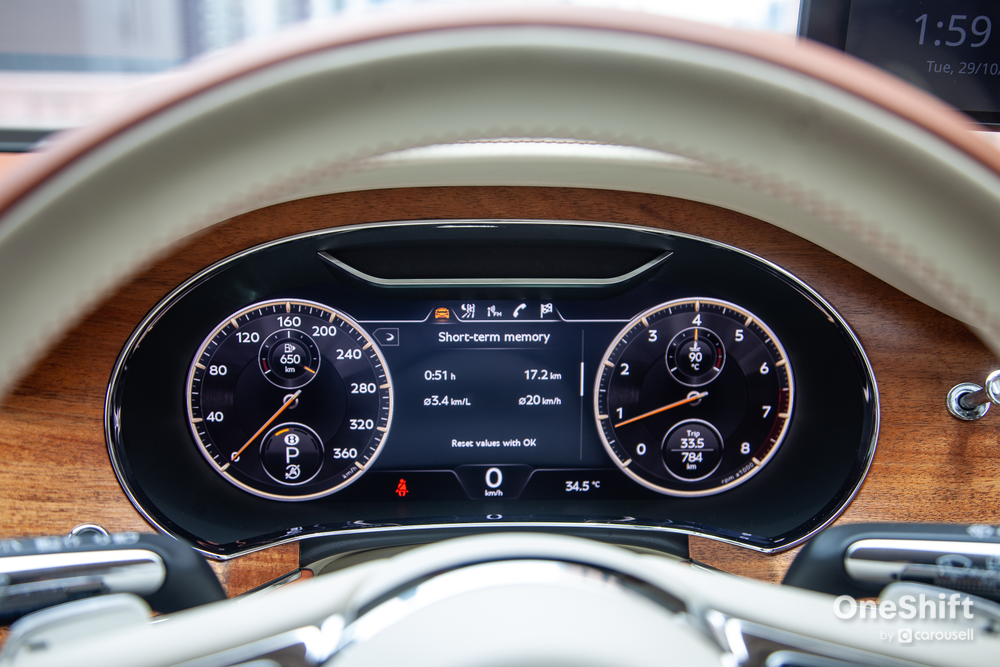
It is the interior where the car shows a bit of its age. It is not the overall design and execution; the stunning colour combination, materials and build quality serves to arrest any doubts. It is the infotainment system that feels a tad dated, with lower resolution screens that take longer than expected to load and toggle through. You could swivel it away to reveal a wood panel or a string of clocks, but this is an optional extra.
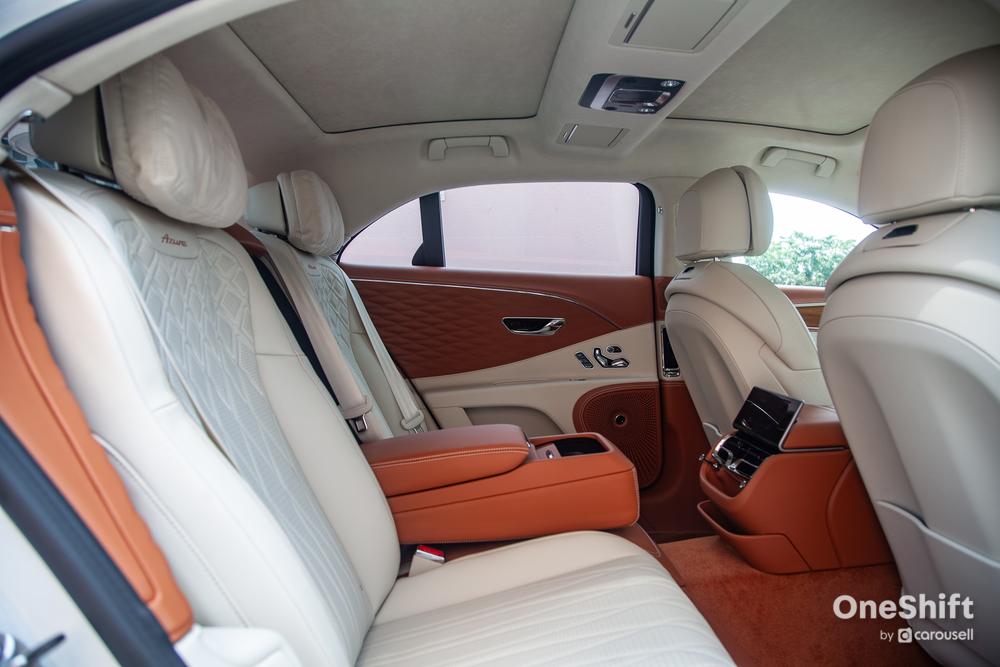
But software I reckon is an easy fix, and I am sure the next Flying Spur would already have something far better. That the rest of the car hasn’t really shown any wear in the test of time is a testament to how right it was in the first place. While I understand the need to incorporate more electrification, I am heartened that Bentley is retaining a V8 for the successor Flying Spur. The V8 lives on, more relevant and current than ever.
Photos by James Wong
---
Sell your car to us for up to $5,000 more than market prices. Get a quote now!








Get the Best Price for your used car
from 500+ dealers in 24 hours

- Convenient and Hassle-Free
- Consumer Protection
Transparent Process
With No Obligation
